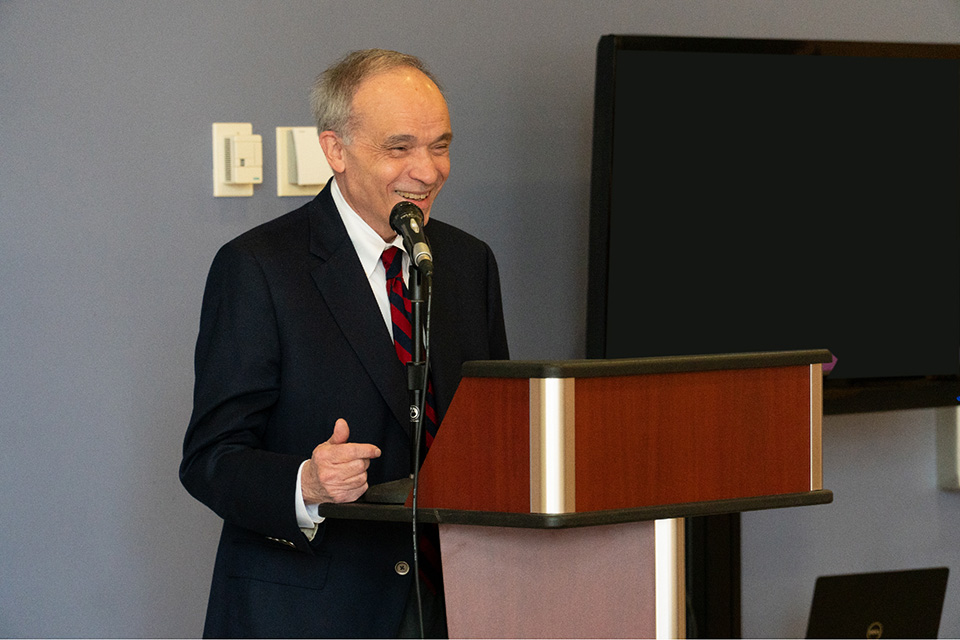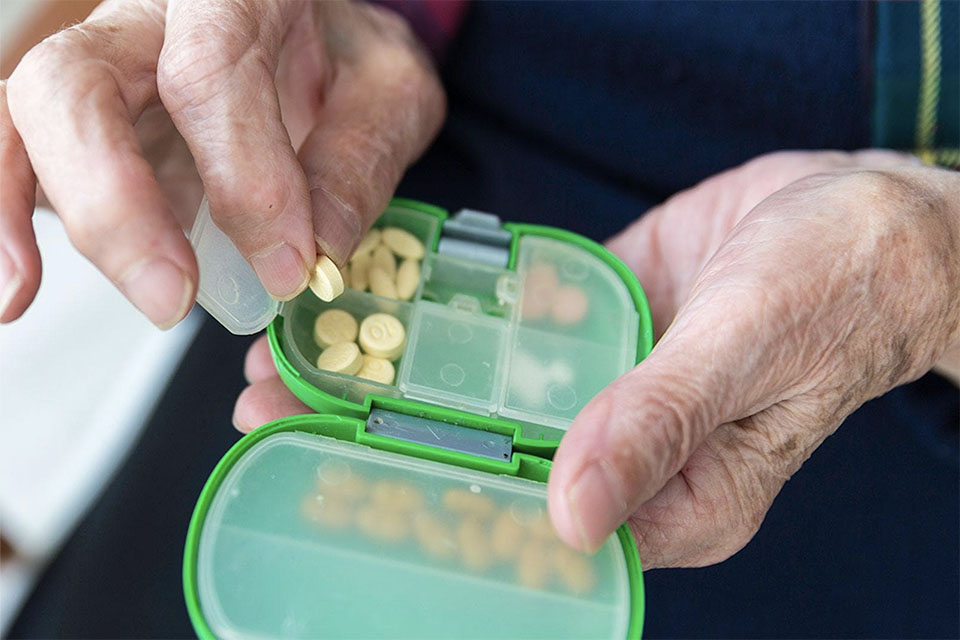CDPP Hosts Conference to Examine Emerging Issues in FDA Law
Concerns surrounding the implementation of the new Drug Quality and Security Act are highlighted at event co-sponsored by the University of Maryland Schools of Pharmacy and Law and the Food and Drug Law Institute.
By Malissa Carroll
January 23, 2015
The Center on Drugs and Public Policy (CDPP) at the University of Maryland School of Pharmacy, in collaboration with the University of Maryland Francis King Carey School of Law and the Food and Drug Law Institute, hosted a conference in December to examine issues related to the implementation of the Drug Quality and Security Act (DQSA) in the United States. Titled “Emerging Issues in FDA Law: Implementation of DQSA,” the event brought representatives from academia, law firms, associations, government, and industry together to review key parts of the act, including a recently released guidance from the Food and Drug Administration (FDA) and important deadlines, and to discuss future plans for its implementation across the country.
“The DQSA will continue to have a significant impact on drug manufacturers, wholesalers, and pharmacies,” says Frank Palumbo, PhD, JD, professor in the Department of Pharmaceutical Health Services Research (PHSR) at the School of Pharmacy and executive director of the CDPP. “This conference brought together a wide range of excellent expert speakers who addressed a number of important issues surrounding the law’s implementation, and kept our audience members thoroughly engaged in the discussions. It was truly one of the best events of its kind that we, in collaboration with our partners at the School of Law and the Food and Drug Law Institute, have ever hosted.”
The DQSA was passed in response to the New England Compounding Center fungal meningitis outbreak in 2012, which killed 70 people and infected 750 others. A modification to the Federal Food, Drug, and Cosmetic Act, the DQSA grants the FDA more authority to regulate and monitor the preparation of compounded drugs, while also making it easier to track and trace those drugs throughout the supply chain.
“It is important that people understand the motivation for the DQSA,” says Palumbo, a licensed pharmacist and member of the Maryland and District of Columbia Bars. “The New England Compounding Center was a licensed pharmacy in Massachusetts. However, the Massachusetts Board of Pharmacy had not inspected them, nor had the FDA, as it was unclear whether the federal agency had the authority to perform such a task.”
The conference was divided into two parts to better address the two different provisions included in the DQSA: compounding pharmacy practices and track-and-trace measures. Following opening remarks, a panel presentation moderated by Palumbo kicked off the event. Panel members included Lee Rosebush, JD, an attorney with BakerHostetler; David Miller, RPh, executive vice president of the International Academy of Compounding Pharmacists; and Caroline D. Juran, RPh, executive director of the Virginia Board of Pharmacy.
Titled “503A: Traditional Pharmacy Compounding,” presenters from Palumbo’s panel provided audience members with an overview of compounding pharmacy practices in the United States, underlining the passage of the DQSA and subsequent creation of new outsourcing facilities to compound drugs. “Unlike traditional compounding pharmacies, which can still compound prescriptions under the regulation of state boards of pharmacy, outsourcing facilities must register with the FDA and strictly adhere to good manufacturing practices developed by the agency. These facilities must also submit to regular inspections by the FDA,” said Rosebush.
The presenters in Palumbo’s panel also examined potential obstacles for compounders, as the passage of the DQSA has led to inconsistencies with existing state laws, standards established by the US Pharmacopeial Convention, and professional practice. The impact of DQSA implementation on state boards of pharmacy was also discussed. “There will continue to be challenges as we work to implement the DQSA, but I am confident that we are continuing a positive movement toward a new national standard, improving communications, inspections, training, and resources for compounding pharmacies across the country,” added Miller.
Additional panel presentations addressed in-depth the outsourcing facilities created by the DQSA, as well as case studies examining the track-and-trace measures included in the new law. The keynote address – titled “FDA Implementation of Track-and-Trace Provisions” – was presented by Ilisa Bernstein, PharmD, JD, deputy director of the Office of Compliance in the Center for Drug Evaluation and Research at the FDA.
“The breadth of information presented during this conference will be crucial in helping members of academia, government, and industry to continue to work together to understand this law and its implications for compounding pharmacies, outsourcing facilities, manufacturers, and wholesalers across the country,” says Palumbo. “While the discussions were lively and rich with new ideas, it is important to remember that there is still a lot of work to be done in this area to ensure the continued safety of those patients who rely on a secure chain of prescription drug distribution and safe compounded drugs.”



